STORIES FROM THE PLATTELAND
When the Karoo was gripped by the worst drought in recorded memory
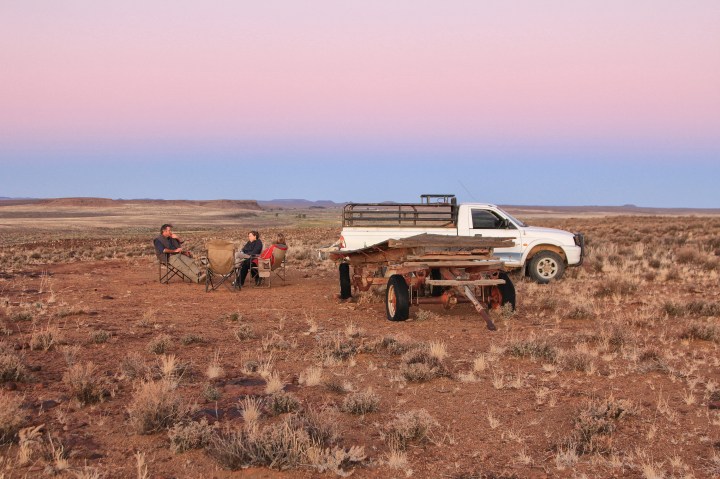
Surviving a bitter drought in the dry lands with faith, hope and a slice of Karoo Crumble.
In August of 2019, the Williston Farmer’s Union held an emergency meeting about the drought, then grinding through its sixth merciless year in the Northern Cape.
“Our chairman said: Okay guys, now we’ve got to appeal to the public for food. Drop your pride, and go on social media,” recounts local farmer Peter Schoeman.
His wife Francy was among the first to get the word out on Facebook. People all over the country responded almost immediately. But Williston was not alone in its desperation. The whole Karoo was then in the grips of the worst drought in living and recorded memory.
Instead of Karoo farmers feeding the rest of the country, they were now standing in line to accept food parcels from aid organisations. It was unprecedented. Farmers had cashed in their pensions, their savings, given up medical aid, had gone into debt just to keep food on the table. School fees couldn’t be paid. There were suicides. Organisations like Gift of the Givers and Burre Burger Drought Relief were criss-crossing the country with fodder for livestock and food parcels and emergency water supplies for communities.
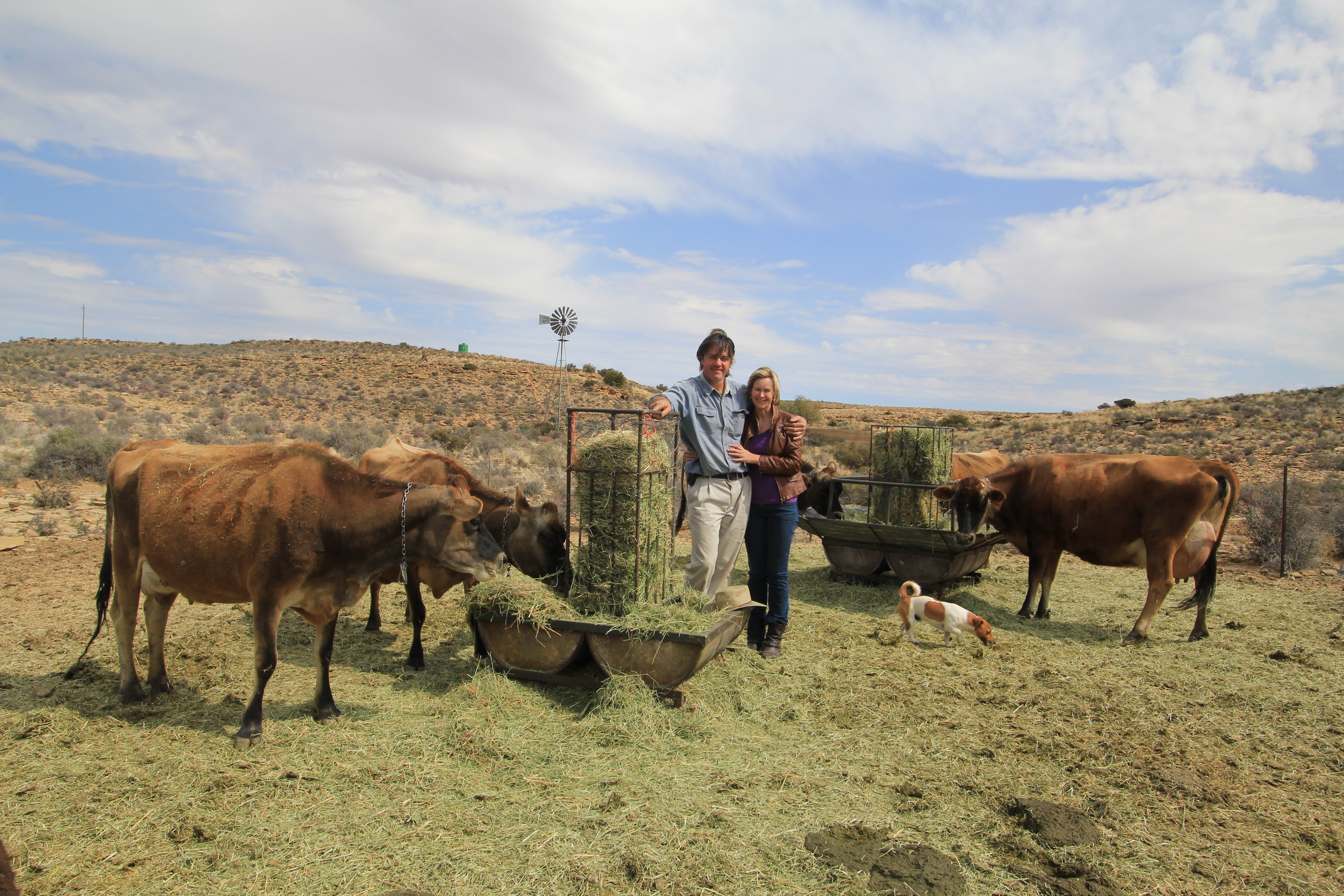
Peter and Francy Schoeman and their Jersey cows, who produce some of South Africa’s finest cheese. Image: Chris Marais
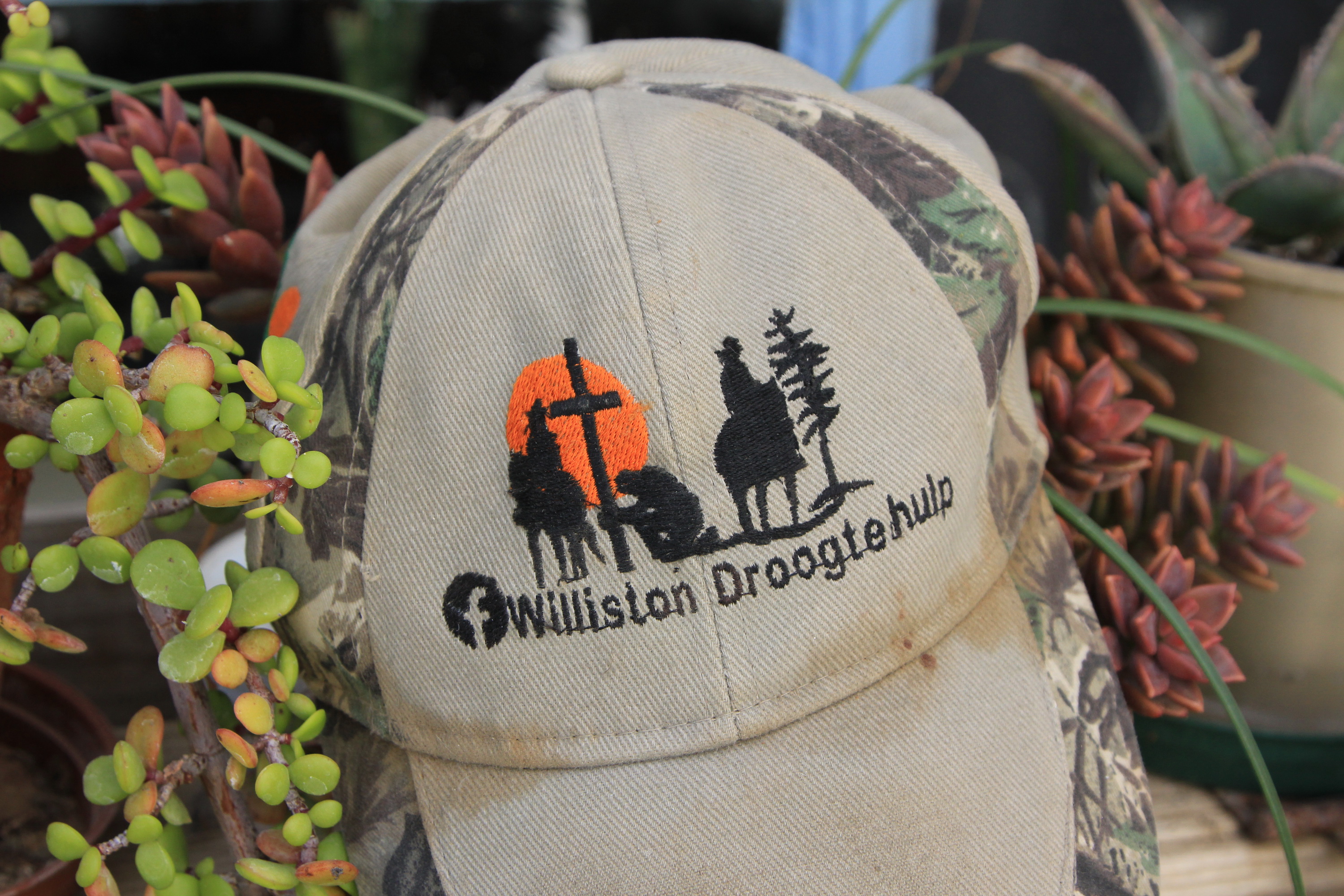
With no real help coming from Government, farmers helped each other. Image: Chris Marais
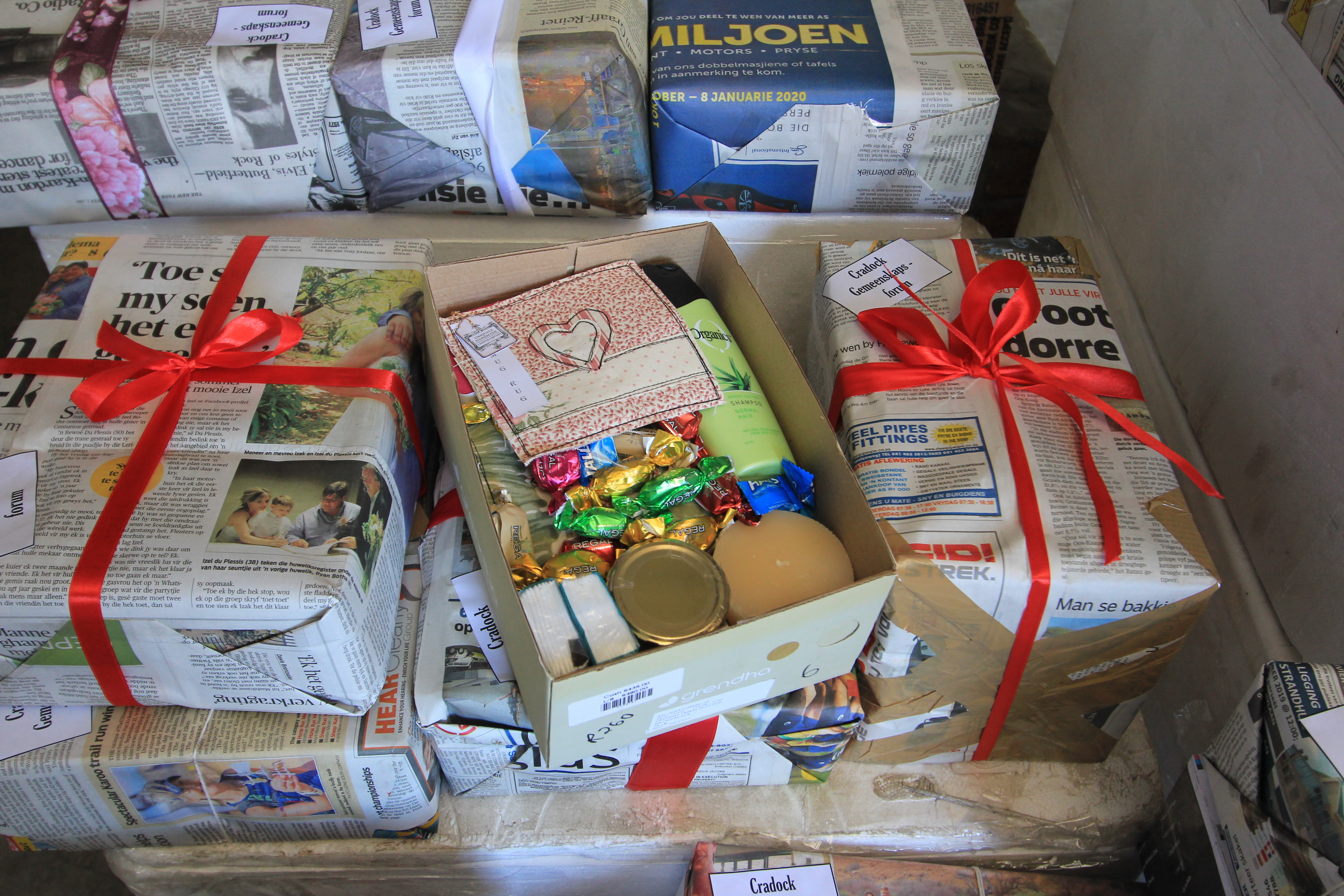
One of the many thousands of care packages sent to drought-stricken farming families from all over South Africa. Image: Chris Marais
We weren’t alone
“At the Williston Farmer’s Union, all we had been doing was drought relief,” recounts Peter. “There was no time for anything else. Every Friday the trucks arrived. The whole team of us would be there. Our wives were all involved. The farmers’ vehicles would be standing in a row, just outside Williston, on the Sutherland road.
“Our faith was strong. We used to open with prayer, and the dominee would come and say something every time.”
Francy adds: “The whole mood was so amazing because everyone was struggling. There is a peace that comes over you when you are standing together, united.”
In the beginning, the farmers would take turns to bring wors.
“Everyone wants to be early in the queue so they can get going. So we braai a worsie, and the day begins with a nice chat. But the second and the third year it got quieter and quieter. What more is there to say? You’re just waiting for the rain. You are praying for rain.
“We’d go down to visit friends in Cape Town and they’d say: I’ve got a bag of clothing I’ve collected for Williston. Some friends of mine from school called and said they were coming to visit. They arrived with a bakkie-load and trailer filled with bags of maize, sacks of rice, tinned food and cooking oil, even toiletries – enough for us to share with our neighbours.
“And you think, now it must rain, because it feels like drought is all we stand for.”
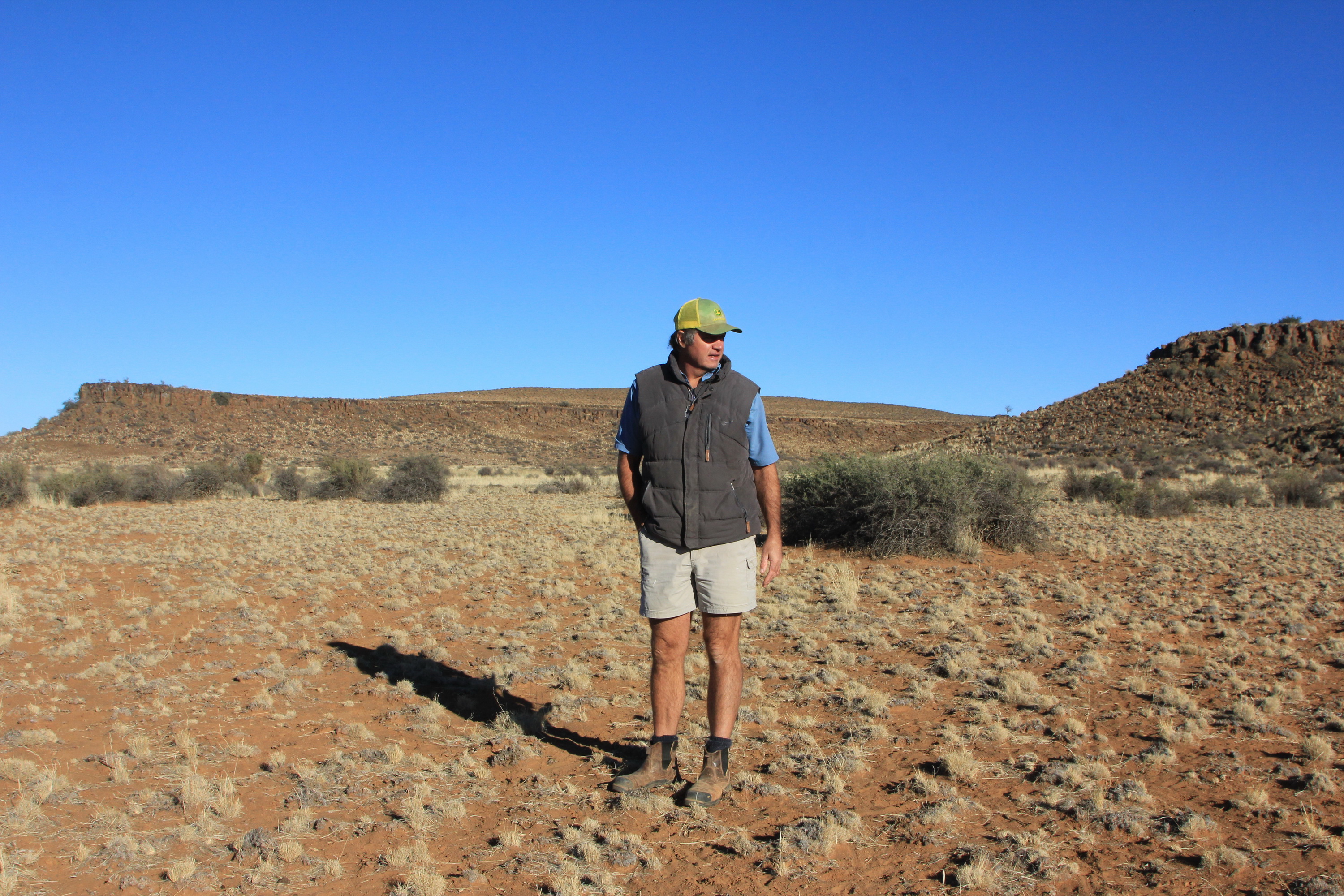
Peter in the veld on Langbaken Farm, as the eight-year drought was being relieved. Image: Chris Marais
Blessed are the cheesemakers
Francy and Peter met in 2000, both of them working on farms near Greyton in the Western Cape. Francy had recently moved there after time spent in the Botswana hospitality industry. She arrived with an obsession to learn how to make cheese, specifically camembert.
Peter was working with cows on a neighbouring dairy farm.
“I saw a beautiful girl running with her dogs on my farm road. I stopped and admired her beasts, then introduced myself as her neighbour.”
It was an edible fairy tale. The plucky cheesemaker from Zimbabwe and the tall dairy farmer from the Karoo fell in love and married. They dreamt of running a boutique slow-food cheesery, but where? Peter’s family farm Langbaken south of Williston turned out to be the most viable proposition, even though there was absolutely no history of dairies in this area. Also, the farm had been closed up for two years since his mother, Klokkies, retired.
Langbaken straddles the Sak River, which rises in the Nuweveld mountains near Beaufort West and flows northwest through Williston. The Sak is the Karoo’s version of the Okavango, an ephemeral river delta that sinks underground long before reaching the sea. Only in times of sustained high rainfall is there running water, ending in a shallow lake that spreads and slowly soaks away into the sands north of Brandvlei.
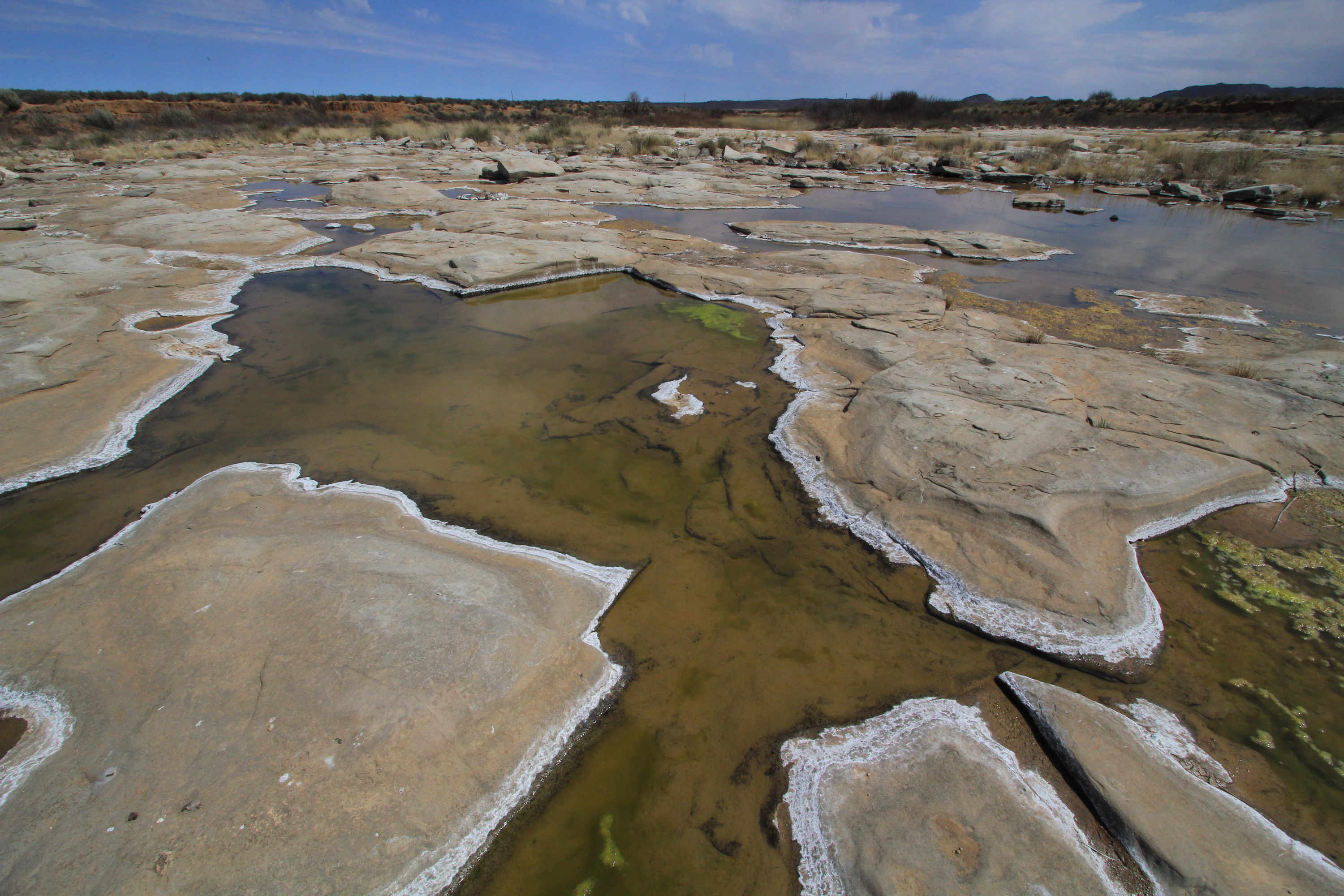
Even in normal rainfall years, the Sak River seldom flows. Image: Chris Marais
Cheese wheels rolling
Cheesemaking friends came to advise them on the possibilities. With a dozen or more Jersey cows, fed on lucerne grown on the banks of the Sak River, supplemented by barley sprouts, it seemed possible. So in 2010, with their young daughter Alanna, the Schoemans set up a farming enterprise that included hardy Dorper sheep on the veld, and a paddock full of doe-eyed dairy cows.
“I’m lucky that Peter’s family has been here for generations (Alanna is the fifth). And that we have great neighbours. I feel like I’ve come home. I’ve returned to a place with the same values I grew up with in Zim, where people help one another,” says Francy.
On the kitchen fridge, they scrawled their daily recipe for success: “12 happy Jersey cows, 1 pristine Karoo farm, 250 litres of milk + boerseun and boeremeisie = 25 kg of real cheese.”
Outside, in an old stone kraal are the happy cows in question, with names like Mariaan, Maggie, Kloks, Vlooi, Dassie, Bakkies, Vettie, Karlien and Jackie.
All Langbaken cheeses are named after their tough environment: Karoo Crumble, Karoo Blue, Karoo Swiss, Karoo bossie, Karoo Sunset and Williston. Every single one of these helped get them through the drought. Each week, the courier would arrive and pick up wheels of cheeses to send down to Cape Town, George and Johannesburg. This thin but constant trickle of income kept them and their workers going.
In the cheese room, we watch as Francy empties a very precise amount of rennet and culture into 250 litres of fresh raw milk being warmed and stirred in a large stainless steel vat. Soon the curds begin to form in a mystical process that will culminate, nine months later, in wheels of delicious Karo Crumble, one of their first and most popular brands.
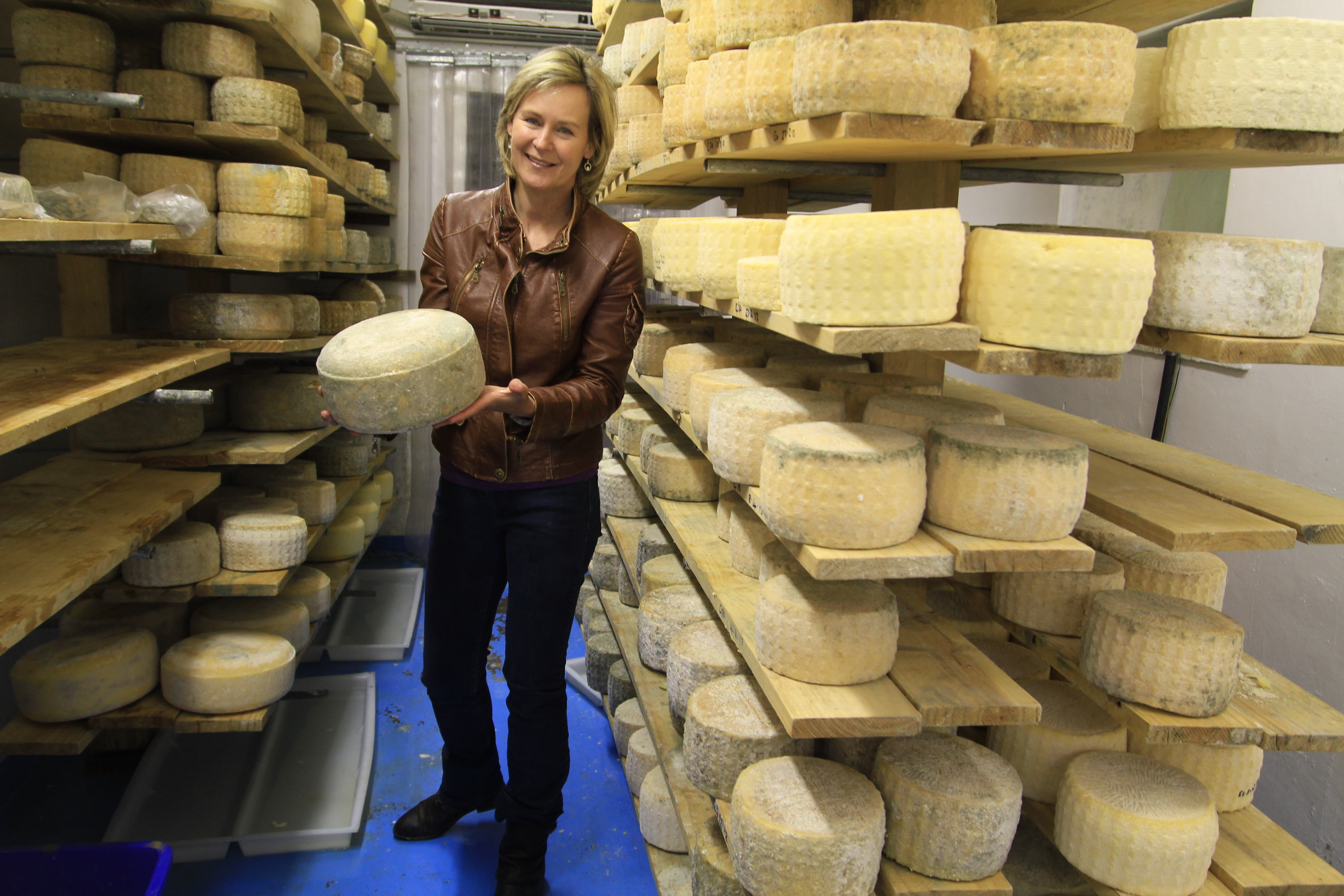
Francy in her storeroom where the artisanal cheeses slowly mature. Image: Chris Marais
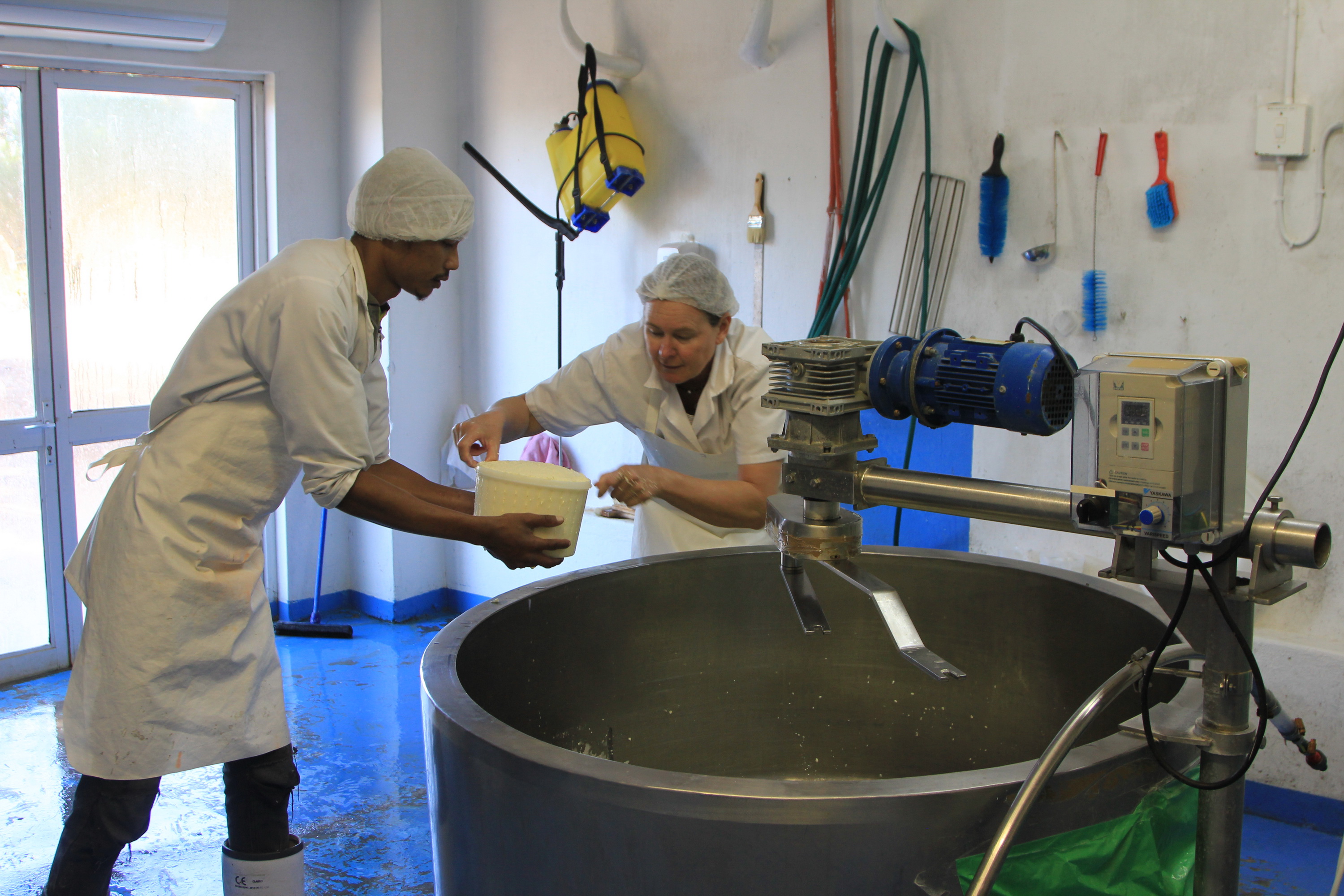
Francy and assistant John Feris packing moulds full of the cheese curds that will mature into Karoo Crumble. Image: Chris Marais
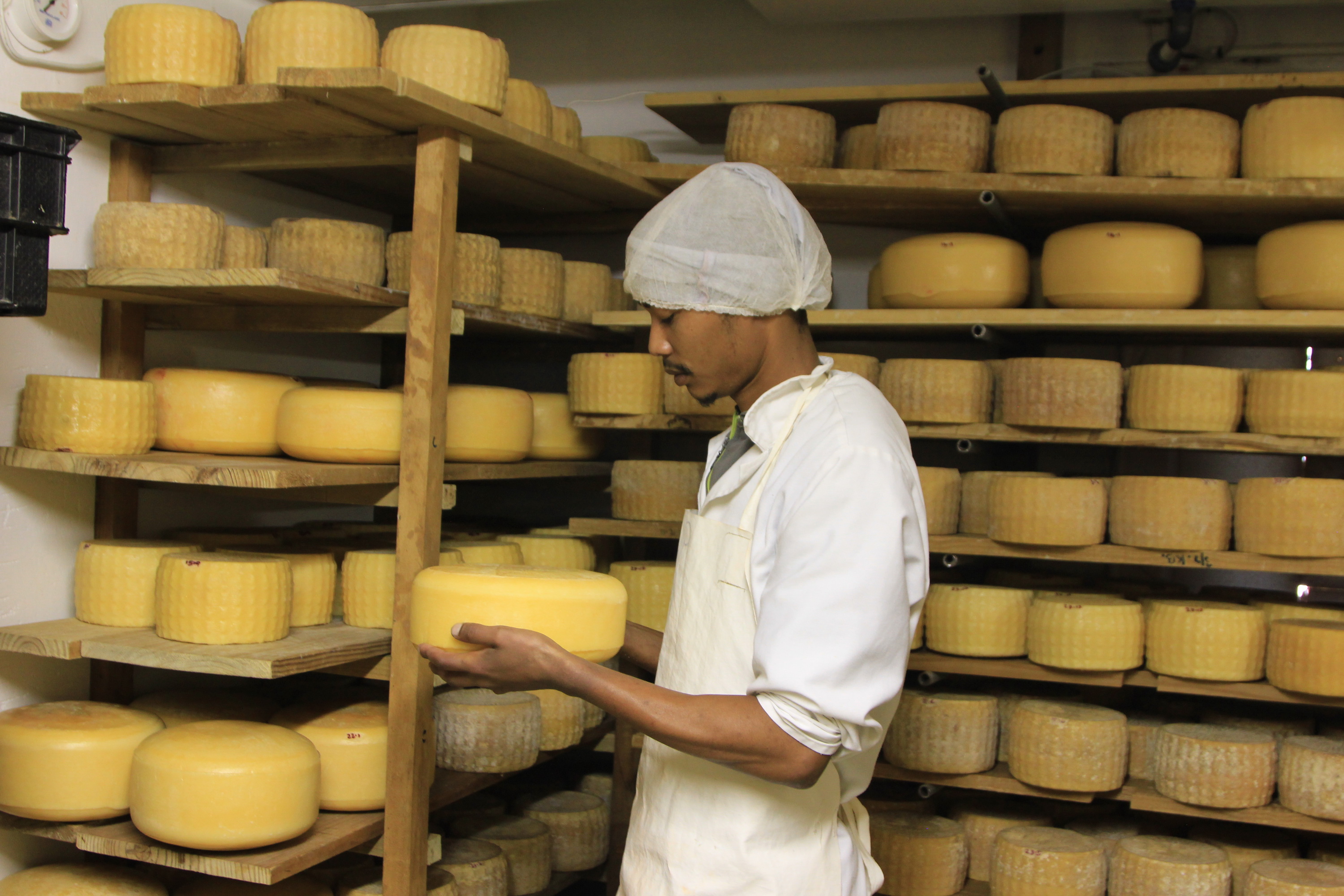
John Feris in the Langbaken cheese room. Image: Chris Marais
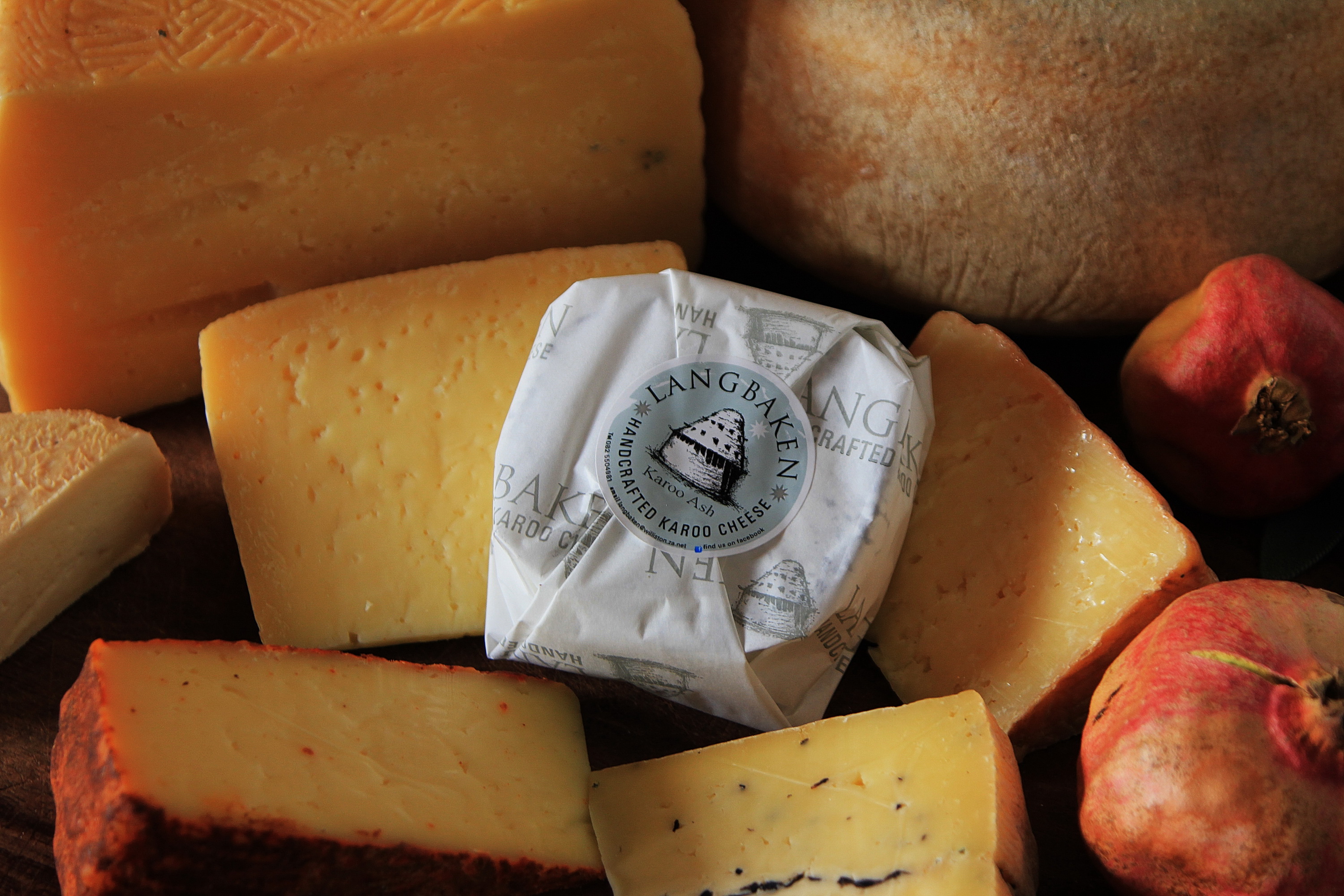
Francy adheres to slow food principles in her cheesemaking. Image: Chris Marais
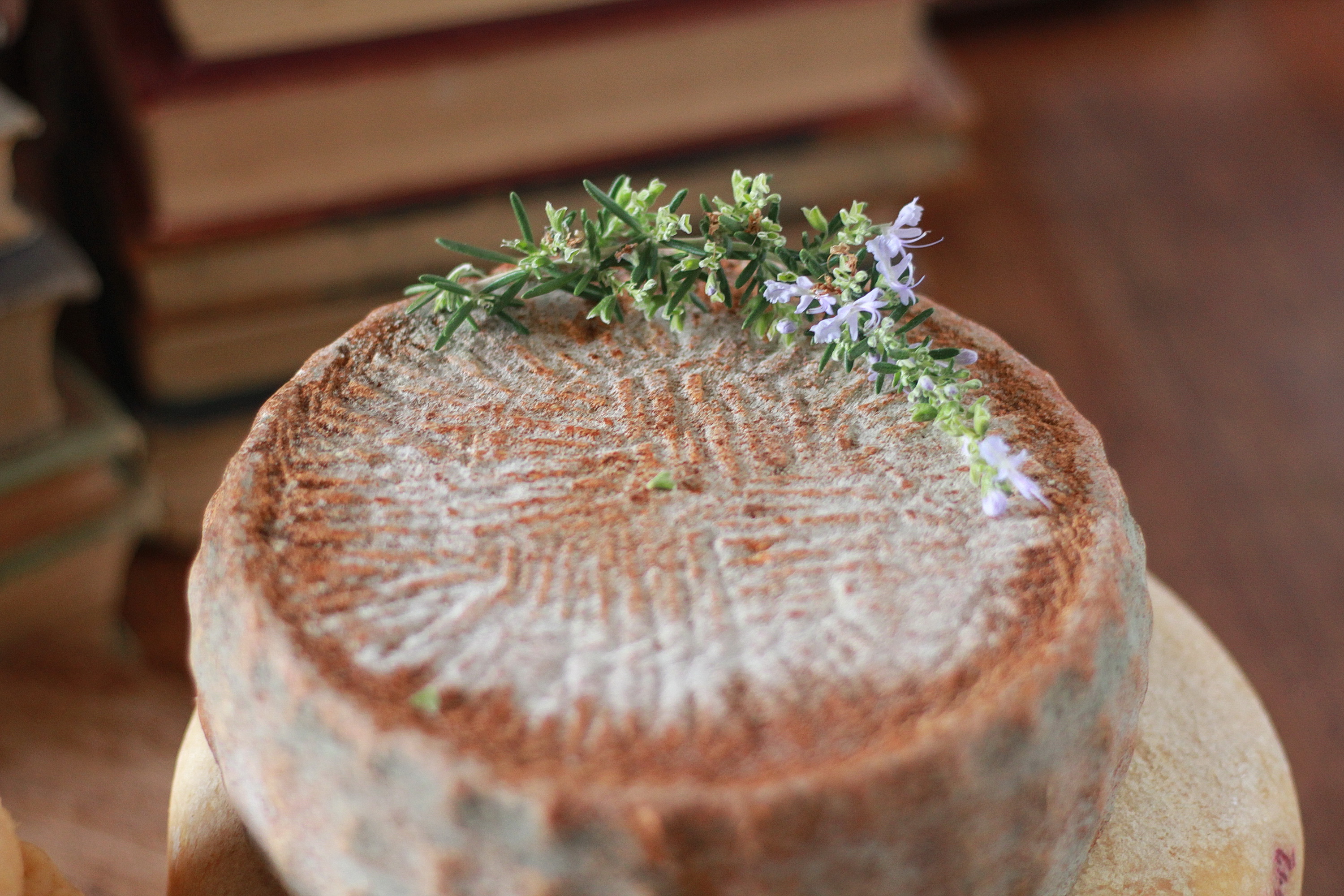
Langbaken cheeses are being marketed and sold at top deli venues all over South Africa. Image: Chris Marais
All meat and no cheese
The beautifully constructed stone walls have stood so long because they were placed with local rain, wind and livestock needs in mind.
A framed history of the farm records that Langbaken was first leased in 1864 to the oldest son of “the Scot George Findlay” who was married to Catherine Schreiner, sister of the famous writer Olive Schreiner. Peter’s mother, Tannie Klokkies, says the name Langbaken referred to a very tall vertical rock that marked a safe crossing through the Sak River in flood.
The corbelled building in front of Langbaken’s gracious farmstead, the one that appears on all their labels, must have been built after 1811. Explorer William Burchell, who passed through this area in that year, and who wrote exquisitely detailed observations, doesn’t mention or describe corbelled houses at all in his two-volume book, Travels in the Interior of Southern Africa.
As for dairy products in the Karoo, all Burchell has to say on the subject is that very good soap and butter are produced in the Roggeveld and Sneeuberg districts, “but cheese is rarely made, the milk being thought too poor for that purpose.”
On the banks of the Zak River, as it was then known, Burchell stayed with Veldcornet Gerrit Snyman, living with his wife in a small two-roomed hut “rudely thatched with reed and sedge”. Burchell writes, somewhat disconsolately: “Very little corn being grown in the district, they are accustomed to live entirely on mutton. While I remained at the Snyman’s, they had three meals of mutton every day.”
The lack of cheese two centuries ago did not surprise Francy at all.
“The temperatures are extreme in the Karoo. You need controlled and hygienic conditions to make and store cheese.”
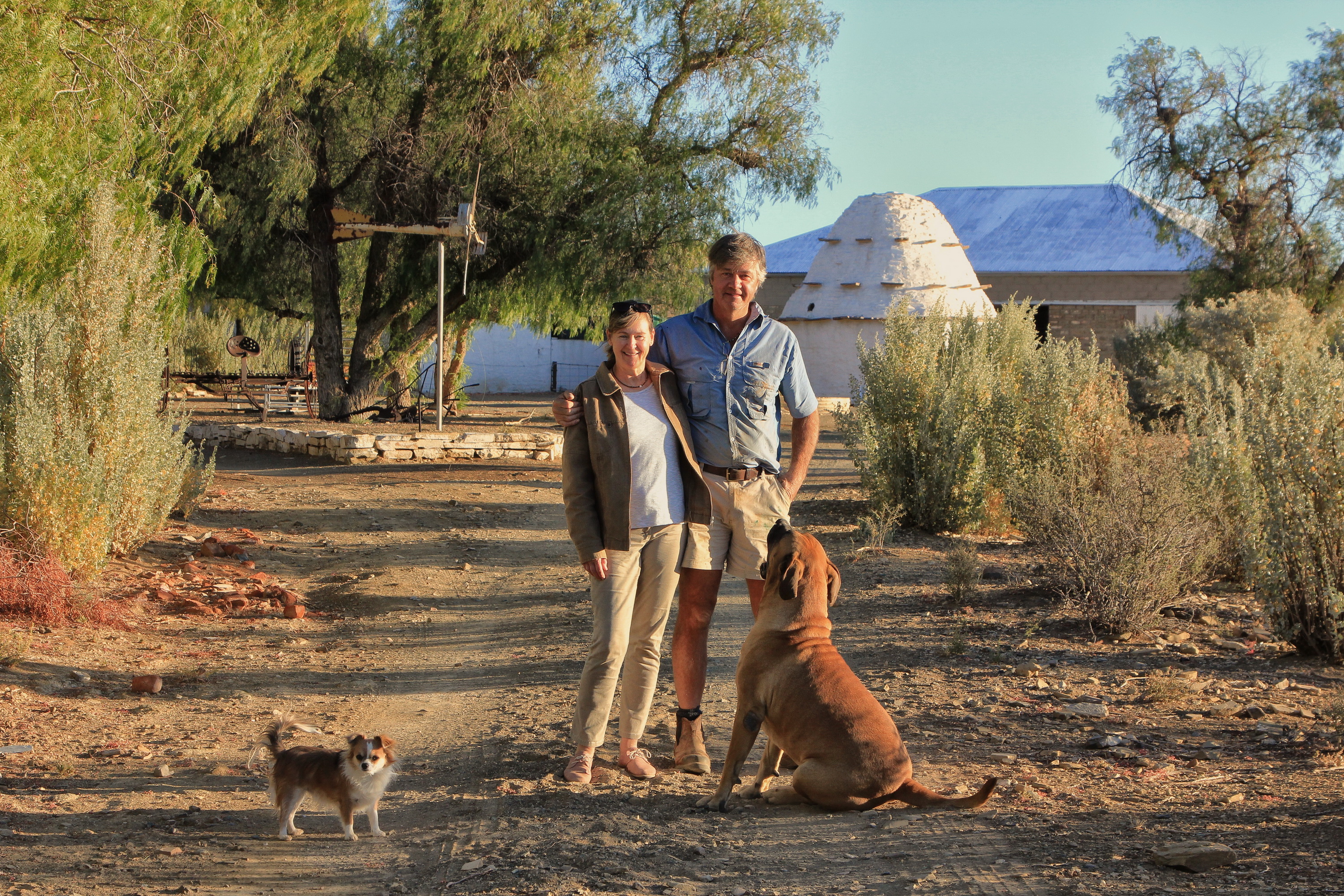
Francy and Peter, with dogs Lila and Jeff, in front of the farmstead and corbelled house. Image: Chris Marais
The foreshadowing
The Inuits have 50 words for snow. Karoo farmers must have a few dozen for rain. One of them is ‘jaloersbuie’, or ‘envy showers’, which meteorologists would probably call highly localised downpours. They can be early signs that a drought is breaking.
In December 2019, heavy jaloersbuie fell on Langbaken and a few neighbouring farms. Jokes started doing the rounds.
“Some said they are also going to acquire some Jersey cows because they seemed to bring a lot of luck. Others said no, prayers for rain work better in English,” says Francy ruefully. “That was hard, not to celebrate when a large part of the community had not seen rain.”
Aid was still coming in via various organisations, but the most help came from fellow farmers in other parts of the country where rain had fallen, says Peter.
In October 2021, the serious rains began to fall. The veld turned from black and grey to pea green. By late November, the Sak River was running again, bank to bank. In December, Francy posted videos of flooded roads, photographs of thickly grassed veld under sumptuously moist rainclouds. She updated her Facebook status to read:
“I just have to share this beauty! The Karoo is laughing and dancing!” DM




















Wonderful Karoo story !